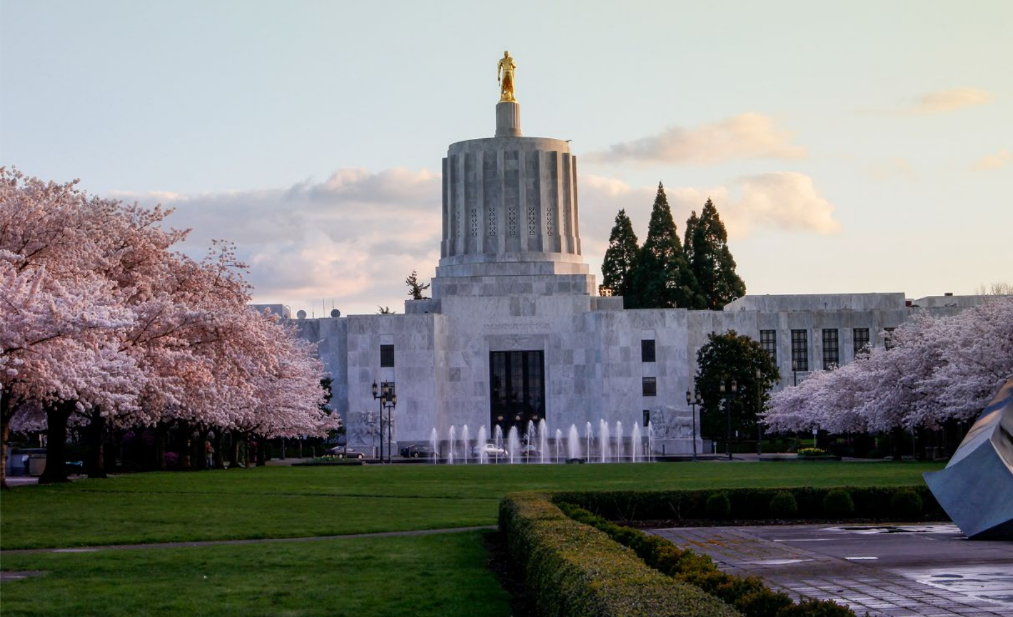A New Kind of Public School: Approved Recovery Schools
Establishing Oregon’s First Approved Recovery Schools
HB 2767 (2023) establishes a limited number of approved Recovery High Schools in Oregon. These schools, under an agreement with the Department of Education (ODE), will provide students with a specialized high school education experience, tailored to meet the needs of students with substance use and co-occurring behavioral health challenges. The new law requires standards for approval of recovery schools, and the operation of recovery schools to include; academic standards, substance use recovery services, graduation, program evaluation, and recovery school accreditation guidance. ODE may establish up to three (3) approved recovery schools for the 2024-25 school year and three more each biennium until there are a total of nine (9) schools.
What is the purpose of Recovery High Schools?
Recovery high schools serve several essential purposes in supporting students in recovery from substance use and co-occurring behavioral health challenges. These schools are a school of choice for students and are not to be used as placement options.
-
Safe and Supportive Environment: Recovery high schools provide a safe and supportive environment where students can focus on their recovery from substance use and pursue a traditional high school diploma without the pressures and triggers that may exist in traditional high school settings.
-
Academic Continuity: Recovery high schools ensure that students continue an educational path that leads to graduation, while receiving the necessary support and resources to address their substance use and co-occurring behavioral health care needs.
-
Comprehensive Services: Recovery high schools offer a comprehensive approach to recovery support, integrating substance use education, mental and behavioral health supports, and coping skills development into academic coursework.
-
Peer Support and Sense of Community: Recovery high schools provide a sense of community and belonging for students who may feel isolated or misunderstood in traditional high school settings. These communities are small by design to enhance bonds between students and enable staff to differentiate instruction and support to meet the student’s needs.
-
Long-Term Recovery Support: By addressing substance use and co-occurring behavioral health challenges early in adolescence, recovery high schools help students develop the skills, resources, and support networks they need to maintain long-term recovery and lead healthy, fulfilling lives beyond high school.
Who can open an approved recovery school?
- Oregon School Districts, Oregon ESDs, and Oregon public charters are eligible to apply and operate an approved recovery school.
Where can I learn more about recovery high schools?
Please
reach out to the Recovery Schools team with questions.
Sign up for an Informational Session!
For updated information, please
subscribe to the Recovery Schools topic to receive email updates.
ODE Legislative Summary Released
 The Oregon Department of Education’s 2024 Legislative Summary is now available! This document provides a final list of bills affecting K-12 education or ODE that made it through the legislative process. With the support of the Governor’s Office, ODE had significant success in achieving its legislative agenda, with the passage of two key bills—HB 4082 and
SB 1532.
The Oregon Department of Education’s 2024 Legislative Summary is now available! This document provides a final list of bills affecting K-12 education or ODE that made it through the legislative process. With the support of the Governor’s Office, ODE had significant success in achieving its legislative agenda, with the passage of two key bills—HB 4082 and
SB 1532.
With the leadership of Rep. Susan McLain, ODE supported
HB 4082, the Summer Learning bill. This legislation will elevate expanded learning programs and further the collaboration needed across the state to effectively administer summer and after school learning grants. Evidence-based practices and research on summer and after school learning show the impact of high-quality programs on increased student academic achievement, engagement, and well-being. HB 4082 embodies a strategic approach, providing immediate funding with a blueprint for lasting impact.
Thanks to Sen. Kayse Jama, Oregon’s immigrant and refugee students will have a plan to address the unmet needs for support within Oregon's education system. As our refugee and immigrant students settle in Oregon to either begin or continue their education,
SB 1532 serves as a meaningful step forward to create an inclusive environment that fosters their growth and development. In implementing SB 1532, our state will empower these students to fulfill their potential, contribute to our society, and build a brighter future for all.
The bills passed this session under ODE’s urging will have positive impacts for the agency, districts, educators and most importantly, students. We are proud of the work we have accomplished, and we hope you are too.
Diploma Seal Reminder

Graduation is just around the corner! Oregon public school students who earn a 3.5 GPA or above are eligible for an honor diploma seal. Schools and or Districts are welcome to request diploma seals via phone call, email or fax to the ODE front desk. Contact information is provided on the request form which can be found under Additional Resources on
the Oregon Diploma webpage.
ODE In the News